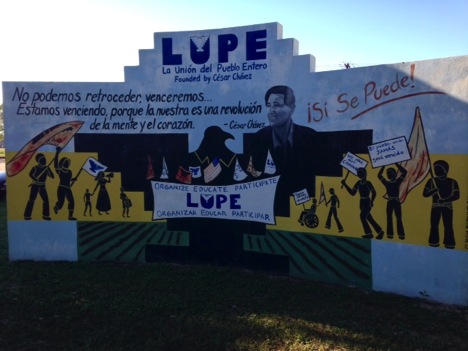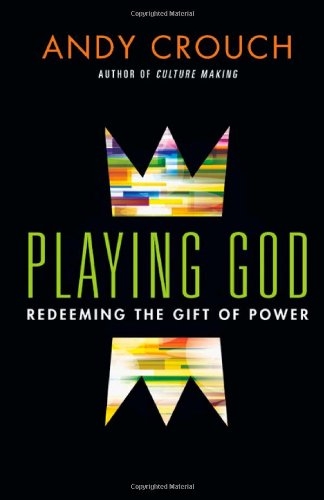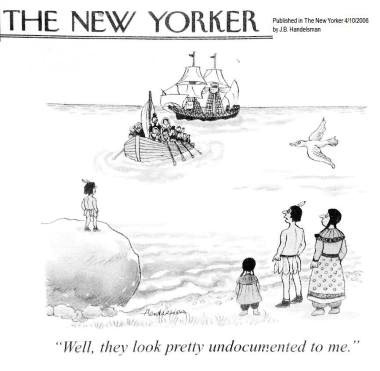November 4, 2013

Since my recent visit to LUPE in San Juan, Texas, I’ve been thinking a lot about what makes LUPE’s community union model so different from most of our efforts (IISC’s and the social sector at large). César Chávez spelled described the core premise succinctly. “From the depth of need and despair, people can work together, can organize themselves to solve their own problems and fill their own needs with dignity and strength.”
Read More
October 28, 2013

“We can’t retreat, we will win… We are winning because our revolution is one of the mind and the heart.” César E. Chávez
During a visit to LUPE, the community union founded by César E. Chávez and the United Farm Workers, Annie E. Casey Foundation’s Partner Organizations of Color explored the connections between child welfare, juvenile justice, community organizing and immigration. One participant spoke a word of caution to capacity builders and organizers who seek to engage and mobilize community residents. “We can’t be another broken promise to the people.”
Read More
October 21, 2013

I just started reading Playing God: Redeeming the gift of power by Andy Crouch, thanks to a book reading group at my church, Grace Chapel. I’m already drawn in by the premise that power is a gift and by his central question: How do we use our power to make people and things around us flourish?
Read More
October 14, 2013

In middle and high school, I challenged (and most likely annoyed) my teachers around this time of the year. I went to school in Plymouth, MA and wondered out loud why Native Americans would want to celebrate Columbus Day. “Shouldn’t it be a day of mourning for them?” I’d ask. I don’t recall any teacher having a good answer to my question or even being willing to engage in meaningful dialogue.
Read More
October 6, 2013

We often focus on the understanding of power as a process and as a social construct rather than a fixed asset. As Beth Roy says, “power is not something you have; it’s something you do.”
Read More
September 30, 2013

I have been thinking about today’s post for days. But, with the possible shutdown of the federal government, I wanted to raise a few questions and concerns. We have a (theoretically) representative form of government, which begs the question whose interests are actually being represented by the gridlock in Washington? Read More
September 23, 2013

Several persistent questions keep us learning and experimenting.
How do we avoid re-traumatizing people of color in this work? Often, people of color in racially mixed learning spaces bear the burden of teaching through telling their own stories. While sometimes liberating, this can also re-open wounds and create resentment at having to prove one’s reality to people who may be reluctant to accept what they have not experienced. And, over time, it can be disheartening to keep extending grace to different people in different spaces for the same mistakes. Racially homogeneous caucuses are one useful antidote. How else can we avoid these dynamics, particularly working in mixed-race settings?
Read More
September 15, 2013

The following post is part 2 of a 2 part series on some collaborative tools and strategies to help us change our selves, change our organizations and change the world. We hope you find it helpful. We encourage you to join the conversation!
We are compelled by a quote from Theory U, attributed to William O’Brien “The success of an intervention depends on the interior condition of the intervener.” Collaborative tools and strategies are only truly useful in the hands of practitioners whose hearts are big enough to hold the complexities, struggles, hopes and fears that accompany the work of transforming racism. Read More
September 8, 2013

The following post is part 1 of a 2 part series on some collaborative tools and strategies to help us change our selves, change our organizations and change the world. We hope you find it helpful. We encourage you to join the conversation!
We are compelled by a quote from Theory U, attributed to William O’Brien “The success of an intervention depends on the interior condition of the intervener.” Collaborative tools and strategies are only truly useful in the hands of practitioners whose hearts are big enough to hold the complexities, struggles, hopes and fears that accompany the work of transforming racism. Read More
August 26, 2013

We partnered with a foundation as they built a network of leaders who shared a deep passion for their city. In the beginning, many of the leaders wanted to do something together quickly. We encouraged them to pause, build deeper relationships, and see what emerged. Read More
August 19, 2013

The following blog post is Part 3 of a series dedicated to Race and Social Transformation. We encourage you to share and comment!
Transforming racism is hard work! The complexity doesn’t automatically mean current efforts aren’t working. Still, many are searching for new ways to deepen their effectiveness. At IISC, we see focusing both on content (what can we do about racism) and process (how we engage with one another) as a powerful way forward. Consider a few examples that flow from our practice.
Read More
August 16, 2013

We worked with a national network of mostly white social change activists. We supported members of the network to increase the number of people of color at their annual gathering from 5% to 40% in a single year. Read More











